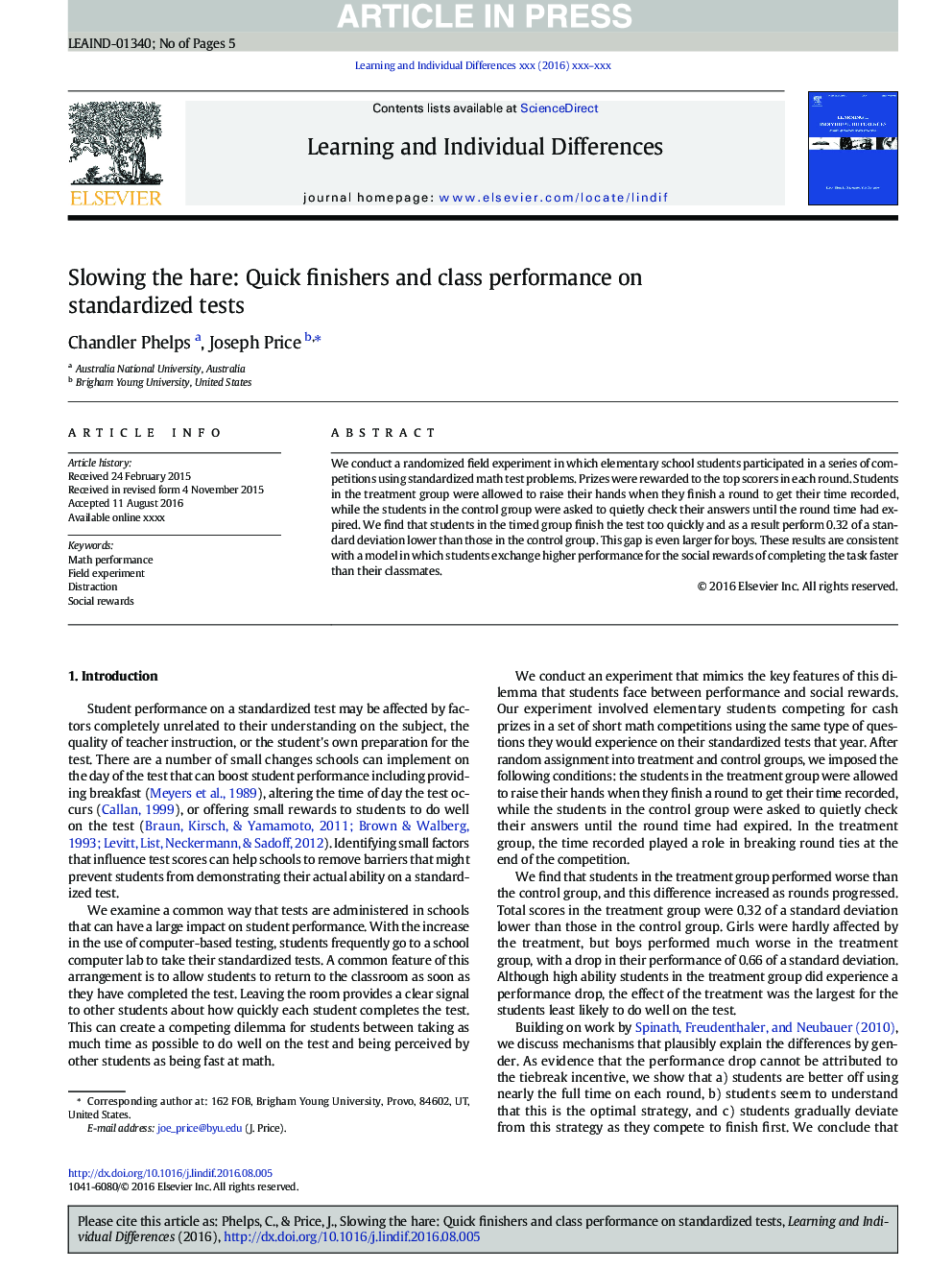| Article ID | Journal | Published Year | Pages | File Type |
|---|---|---|---|---|
| 4940128 | Learning and Individual Differences | 2016 | 5 Pages |
Abstract
We conduct a randomized field experiment in which elementary school students participated in a series of competitions using standardized math test problems. Prizes were rewarded to the top scorers in each round. Students in the treatment group were allowed to raise their hands when they finish a round to get their time recorded, while the students in the control group were asked to quietly check their answers until the round time had expired. We find that students in the timed group finish the test too quickly and as a result perform 0.32 of a standard deviation lower than those in the control group. This gap is even larger for boys. These results are consistent with a model in which students exchange higher performance for the social rewards of completing the task faster than their classmates.
Related Topics
Social Sciences and Humanities
Psychology
Developmental and Educational Psychology
Authors
Chandler Phelps, Joseph Price,
